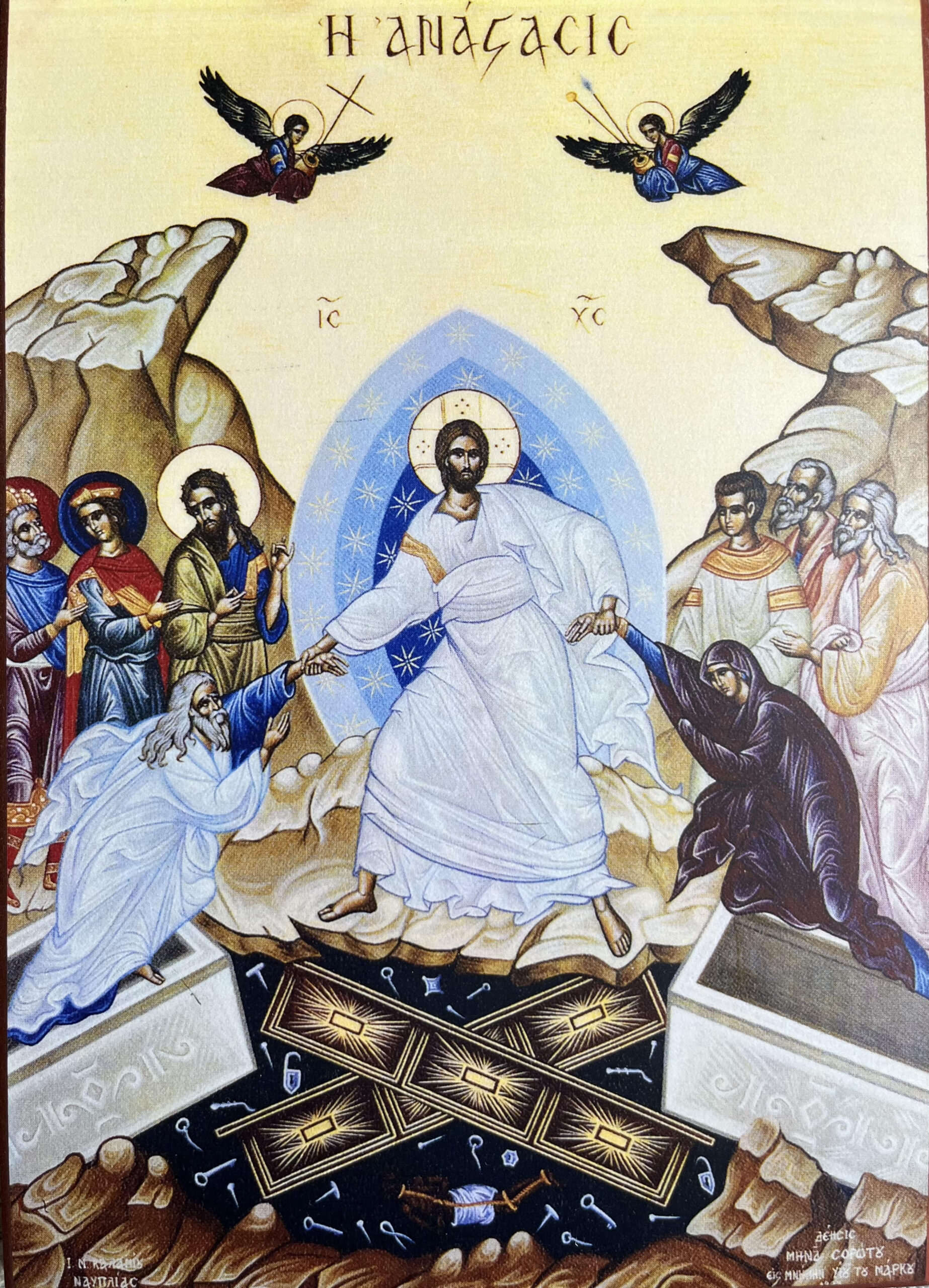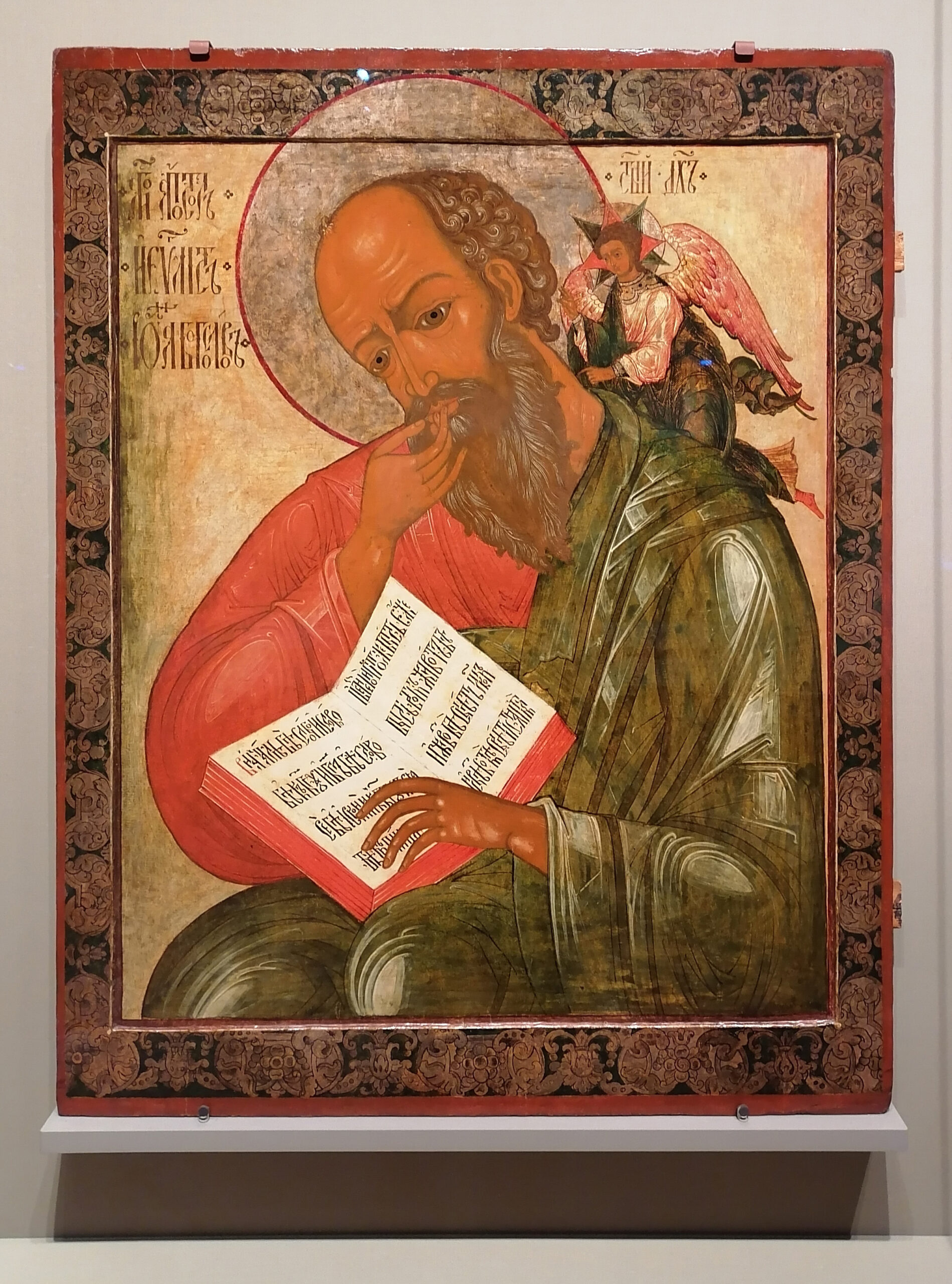You, O Lord Who on the same day, made the thief worthy of Paradise, illuminate me also by the wood of the Cross, and save me.
~Exapostelarion, 12 Gospels, Holy Thursday Evening, Trans. by Fr. George Papadeas
—
One of the criminals who were hanged railed at Him, saying, “Are You not the Christ? Save Yourself and us!” But the other rebuked him, saying, “Do you not fear God, since you are under the same sentence of condemnation? And we indeed justly; for we are receiving the due reward of our deeds; but this Man has done nothing wrong.” And he said, “Jesus, remember me when You come into Your kingdom.” And He said to him, “Truly, I say to you, today you will be with Me in Paradise.”
Luke 23: 39-43
Being in prison must be very hard. Not only is there the loss of freedom, but there is also the knowledge that one’s society has deemed him unworthy to live in free society. Being condemned to death is even worse. Because on top of the pain involved with how a person will be put to death, there is the pain of knowing that one’s society has not only deemed him unworthy of living in free society, but unworthy of living at all.
These were the two thieves that were sentenced to death and executed along with Jesus, hung on two crosses, on either side of Him. One of the thieves railed at Jesus, challenging Him that if He was the Christ, He should save Himself and them. He saw Jesus as an opportunity. The other thief looked at Jesus, not as opportunity, but as His only hope. He essentially confessed his sins, when he told the other thief that they were receiving the due reward of their deeds. He then connected Jesus and the Kingdom of God. Did he know of Jesus beforehand? Did Jesus preach to him on the cross? We do not know. What we do know is that he looked at Jesus as Lord, repented of his sins, and asked Jesus to remember him in His Kingdom. And Jesus responded to him, “Truly, I say to you, today you will be with Me in Paradise.” (Luke 23:43)
The essential elements of salvation are present in the story of the repentant thief. First, there is belief in Christ as the Son of God. Second, there is repentance from sins. Third, there is action. In this case, the only action the thief could do was witness for Christ. Could this witness have affected the later confession of the centurion that indeed Jesus was the Son of God? Could it have affected the faith of others who were present? Very possibly.
A priest once joked with me and said, “The thief on the cross was such a good thief that he stole Paradise in the last moment of his life.” The example of the thief is not an excuse to put off believing until our dying moment. The thief knew that he was about to die. Many of us will die suddenly, with no warning. So, waiting and doing a deathbed conversion is not a good idea.
A couple of important lessons come to us from this story of the repentant thief. First, it matters how we die, for how we die will affect us for eternity. Let’s say a person is a strong Christian until he or she is 30, and then he or she falls away from Christ, never thinking of Him again. Let’s say that another person never hears of Christ until he or she is 30, and once he or she hears, they dedicate their lives to Him. I would think the second instance will have a better shot at salvation than the first.
Second, God is merciful. He showed mercy on the thief who cried out to Him for salvation. However, God is merciful according to His standard of mercy, and not ours. Third, the thief placed all His hope in the Lord. He realized he needed mercy, that this was the only way he could possibly enter into the Kingdom of God. And even though he may not have fully understood what he was asking, he may not have fully comprehended what the kingdom would look like, he placed his faith and his trust in whatever he understood. The other thief had the same chance to put his faith in Jesus and receive the same reward. However, he looked at Jesus as a way out of his problem, rather than as a way into salvation. Believing in Christ is not a ticket out of our problems and challenges, but a ticket into the Kingdom of heaven.
Two more comments on the repentant thief. First, I often think of when the repentant thief challenged the other with the words “Do you not fear God?” Many times in life, we are arguing and doing stupid, foolish things, not only to strangers but to friends, and not only out in the secular world, but even in our churches. And often times, I wonder, “do we fear God? Do I fear God? Do we not realize that we are under a sentence of death, in the sense that we will all die one day, as a result of the Fall (not because of the sin of Adam, but through our own sinful nature that is a consequence of the Fall)?” Each of us is under sentence of death. Do we demand things of Christ? Or do we, like the repentant thief, just hope for mercy?
The second comment is from the beautiful hymn that ends this reflection. It was a repentant thief who was the first to enter into Paradise. If there is this hope for him, then there is certainly hope for us.
The thief upon the cross spoke in a low tone, but found great faith. In an instant he was saved, and being the first to open the gates of Paradise, he entered. O Lord, Who accepted his repentance, glory to You. (14th Antiphon, 12 Gospels, Holy Thursday Evening, Trans. by Fr. George Papadeas)
Do not wait until you are about to die to believe in Christ and to repent of sins. Make conversion and repentance part of your life on a daily basis.

